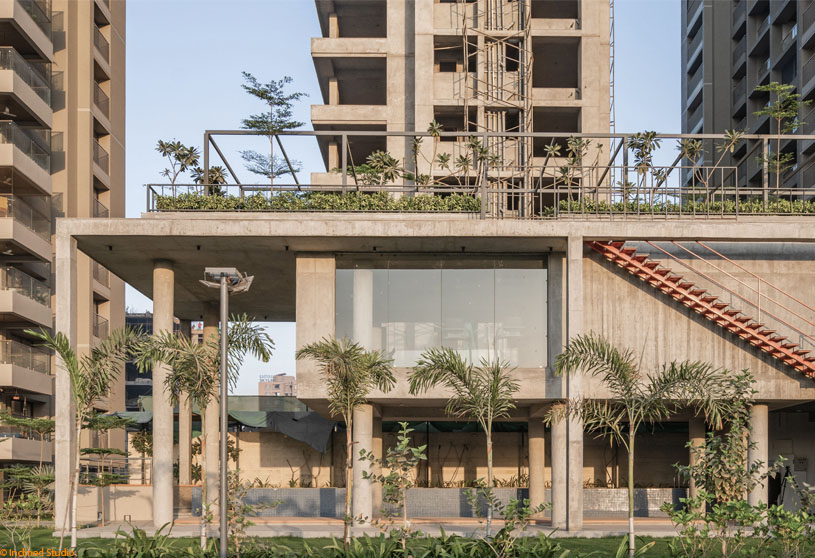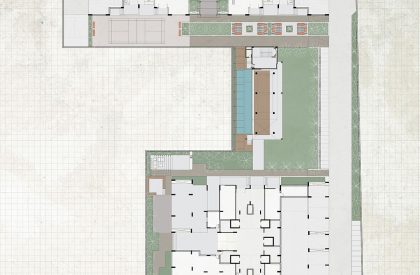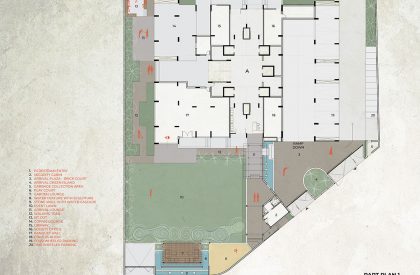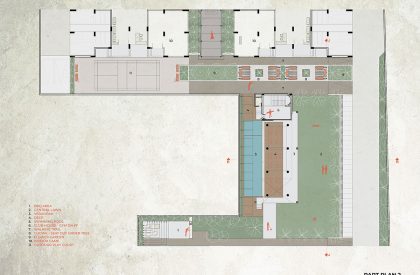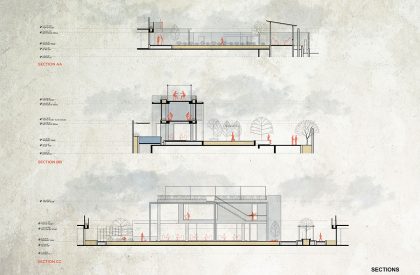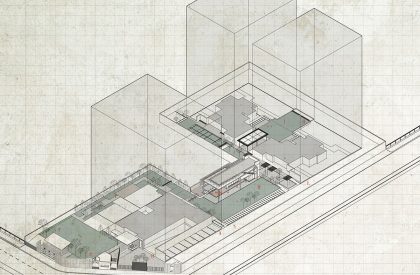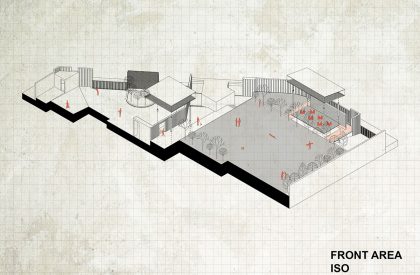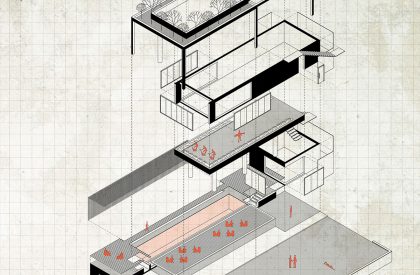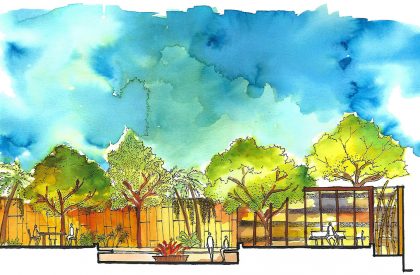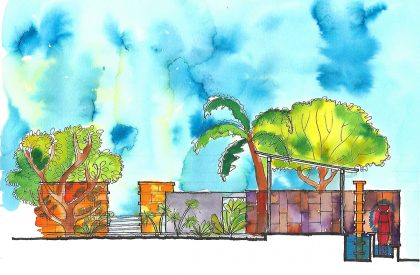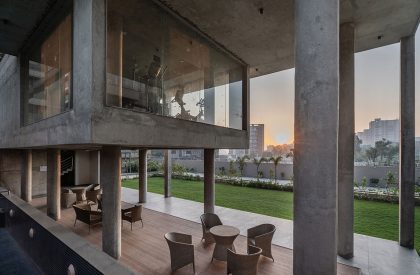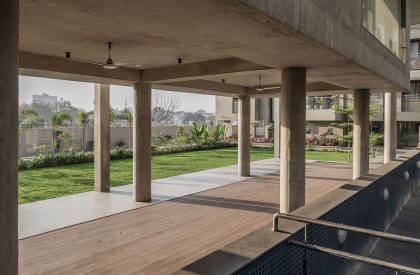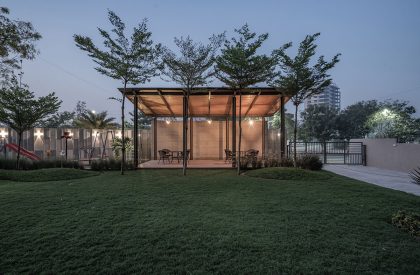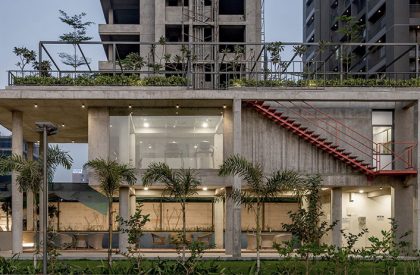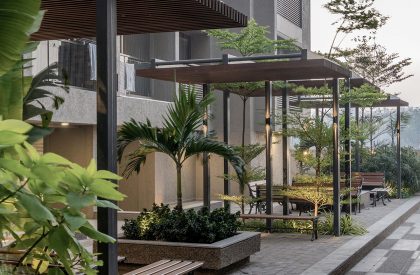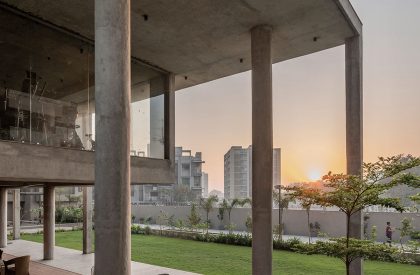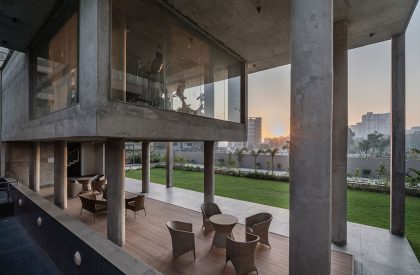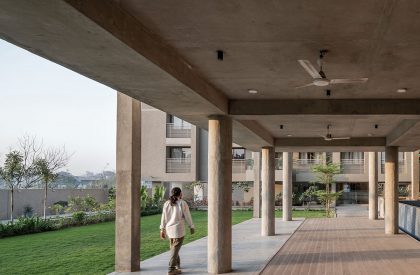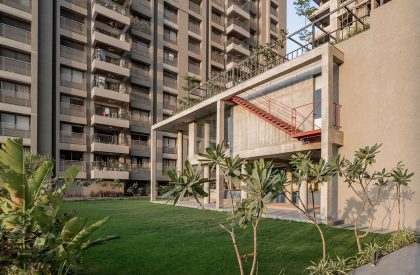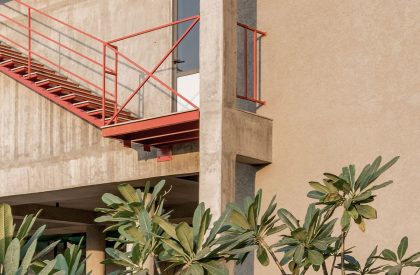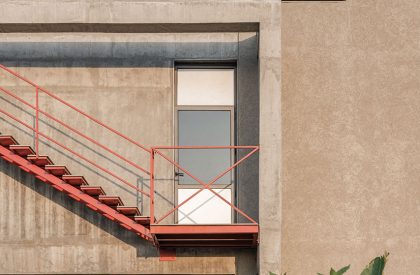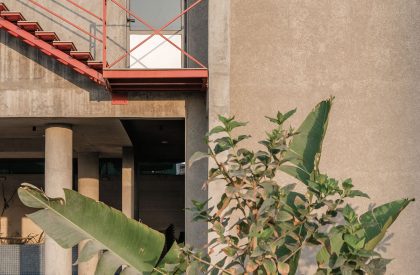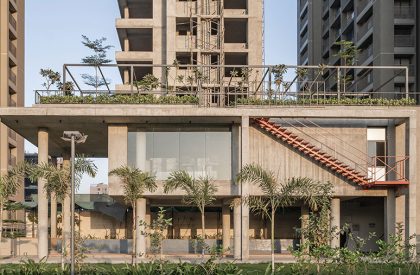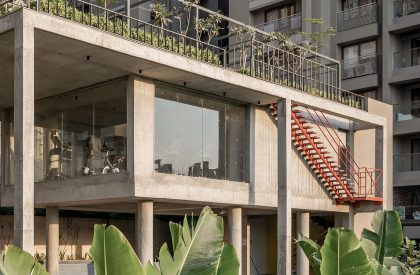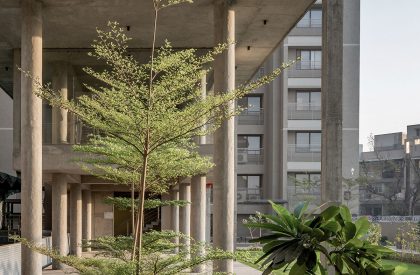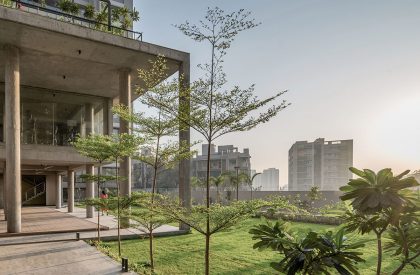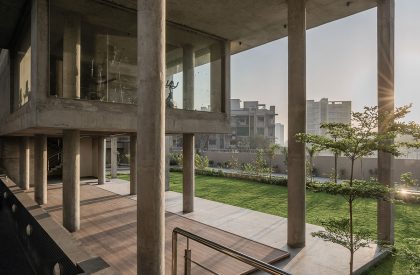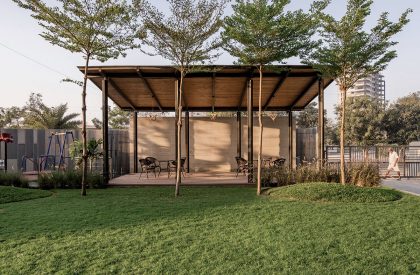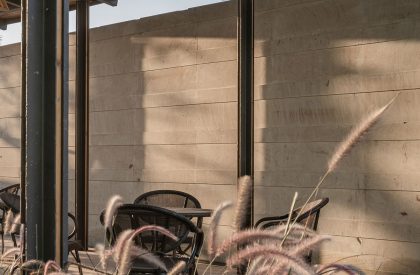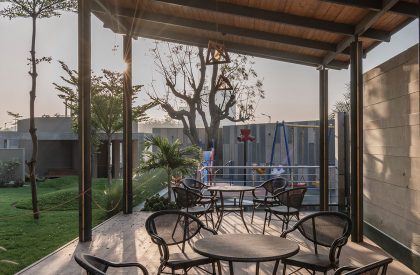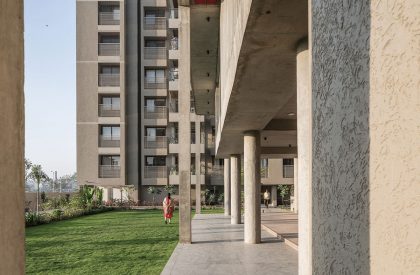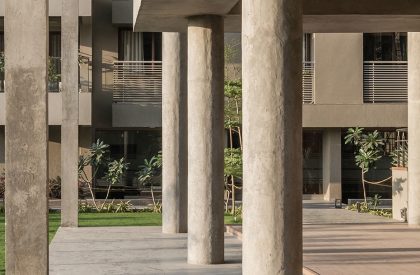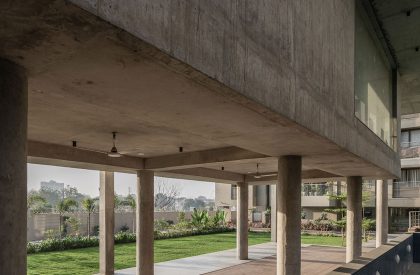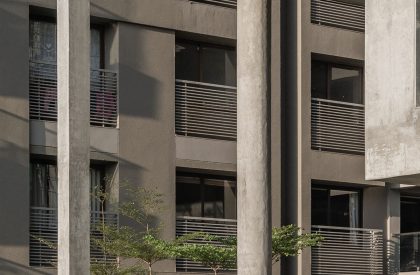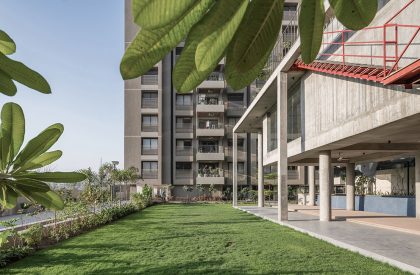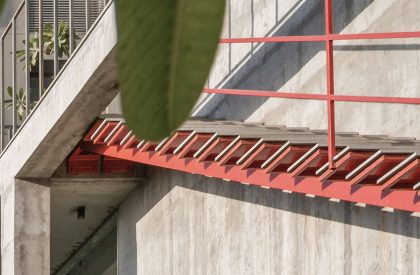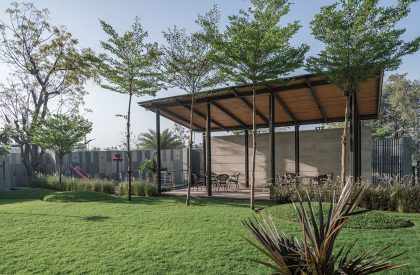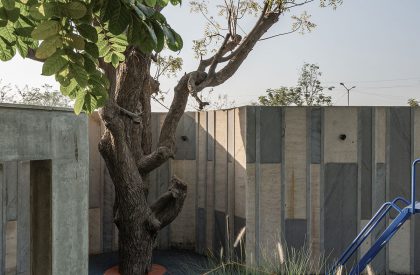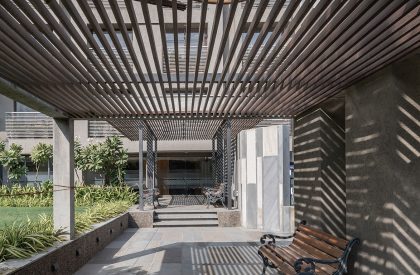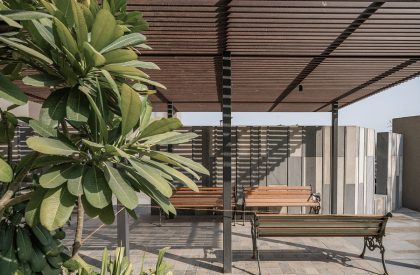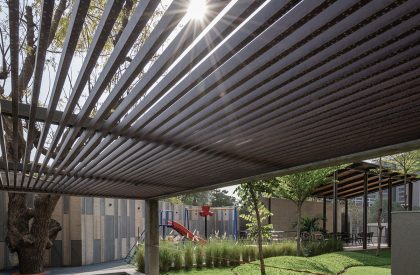Excerpt: The Lea Shell by UA Lab (Urban Architectural Collaborative) is a residential community space that fosters cultural diversity among families. The common open space includes pathways, seating areas, pocket gardens, water bodies, pavilions, lawns, and shaded walkways between building blocks. A central pavilion featuring vertical linear circular columns and horizontal flat slabs houses various community activities.
Project Description
[Text as submitted by architect] The community space developed for vertical housing is a peaceful and relaxing social space. Its inclusive design allows the user to interact and involve with the designed places.
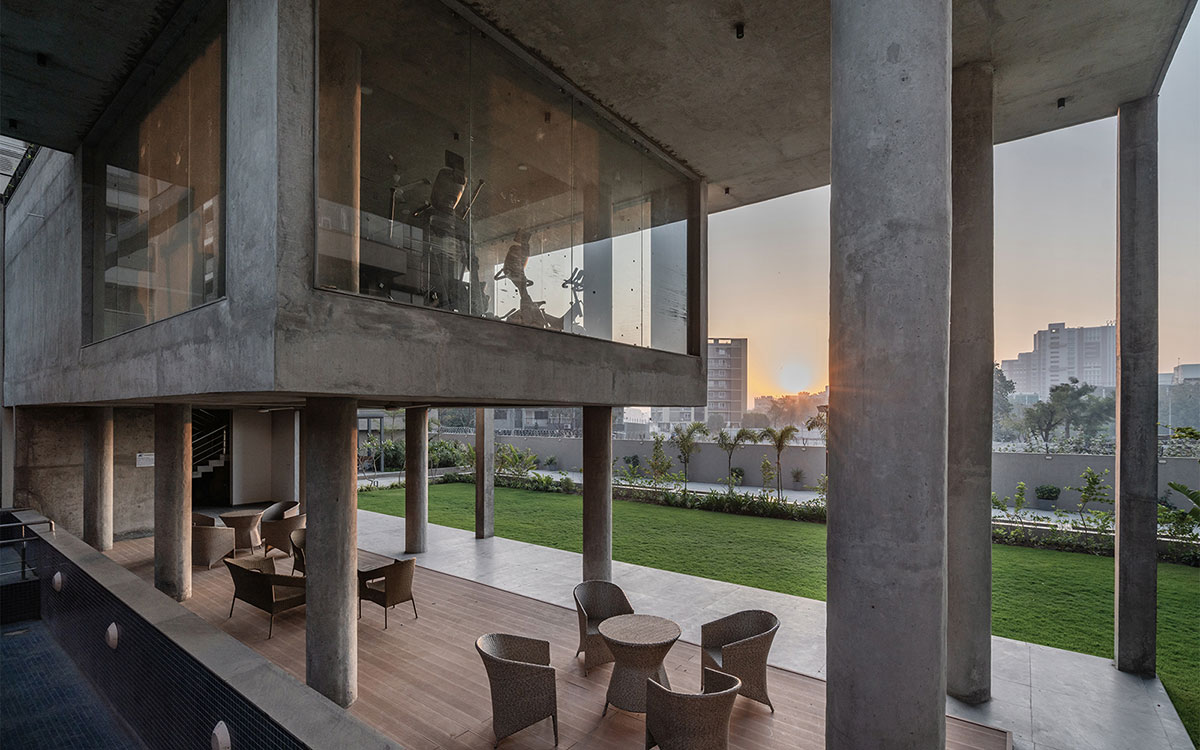
A discourse of intermingling activities: The open community space in a housing is a residential park for the families residing in the housing society. UA Lab has designed the residential community space as a ‘shared space’ between families of different cultural diversity. This space plays a very important role in binding people of different ethnic values and culture together.
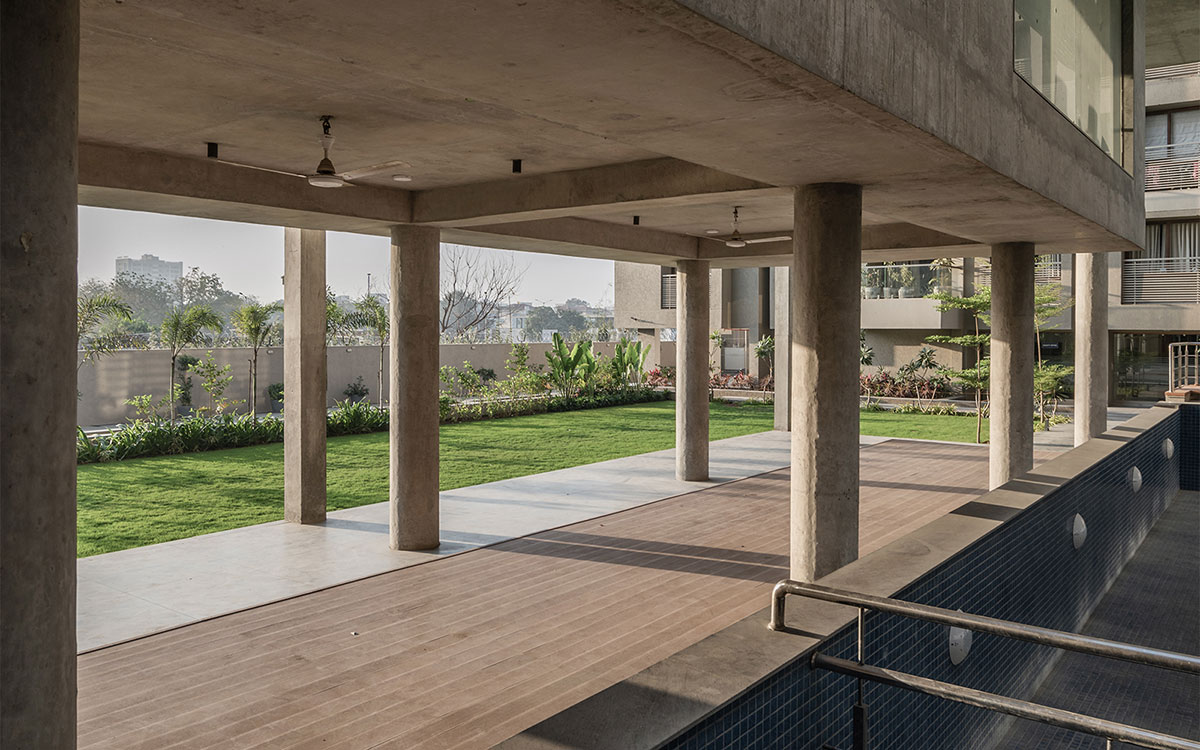
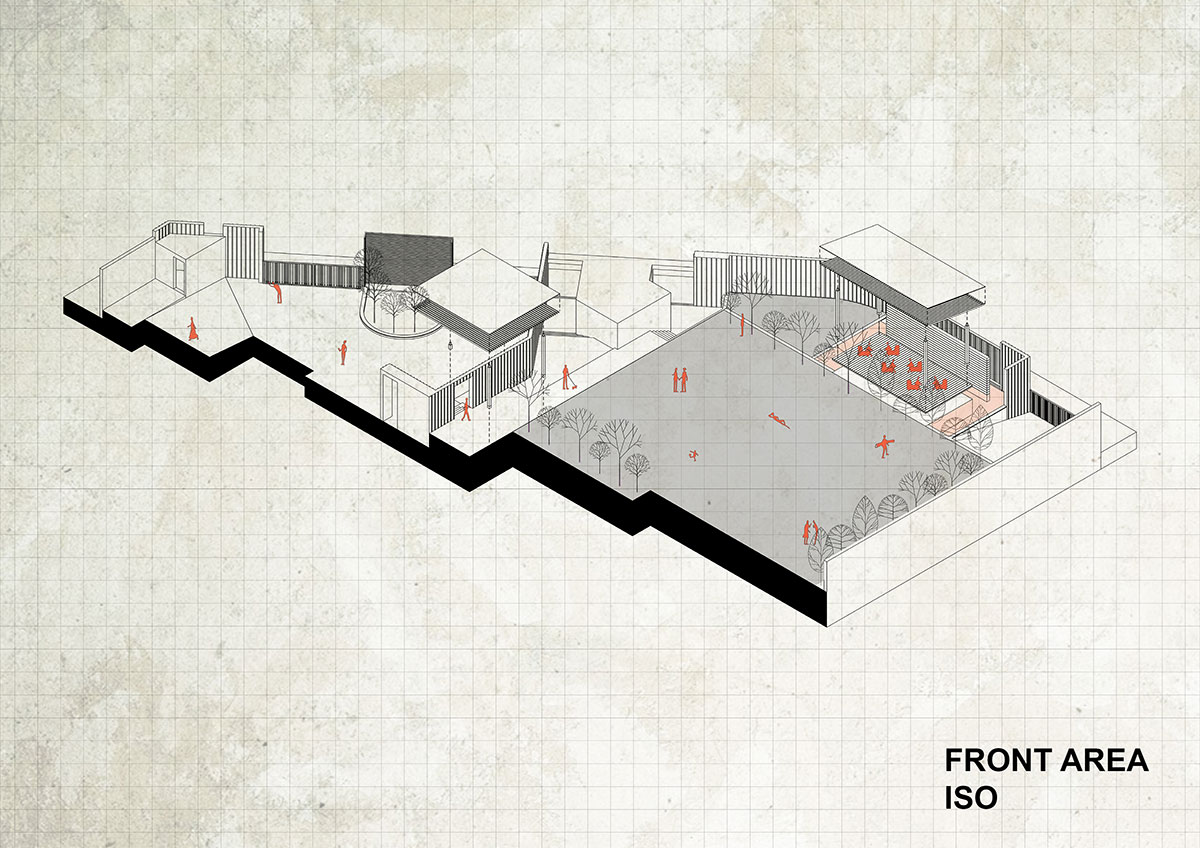
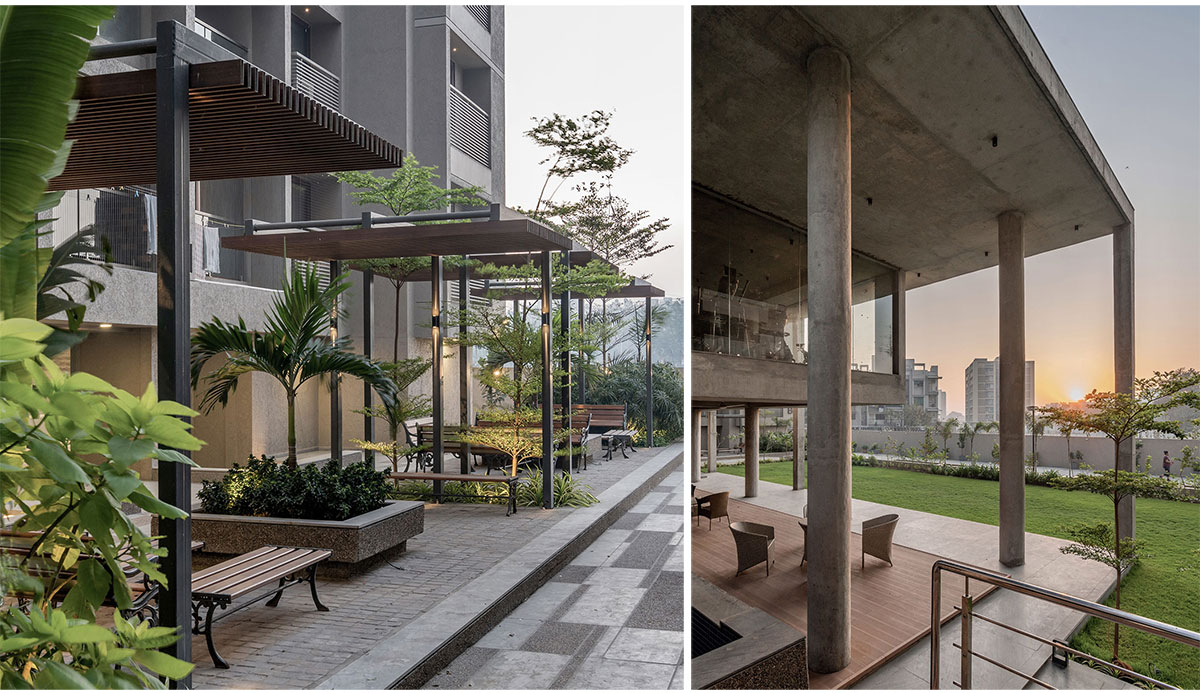
A challenge to create spaciousness: Under the compact city development, the relative proportion of residential community space is quite tight. It is challenging to create spaciousness for families residing in the neighborhood. The common open space stretches between the building blocks as pathways, small seat outs, pocket gardens, small water body, seating pavilions, lawn areas, green mounds, pergola walkways and shaded walkways.
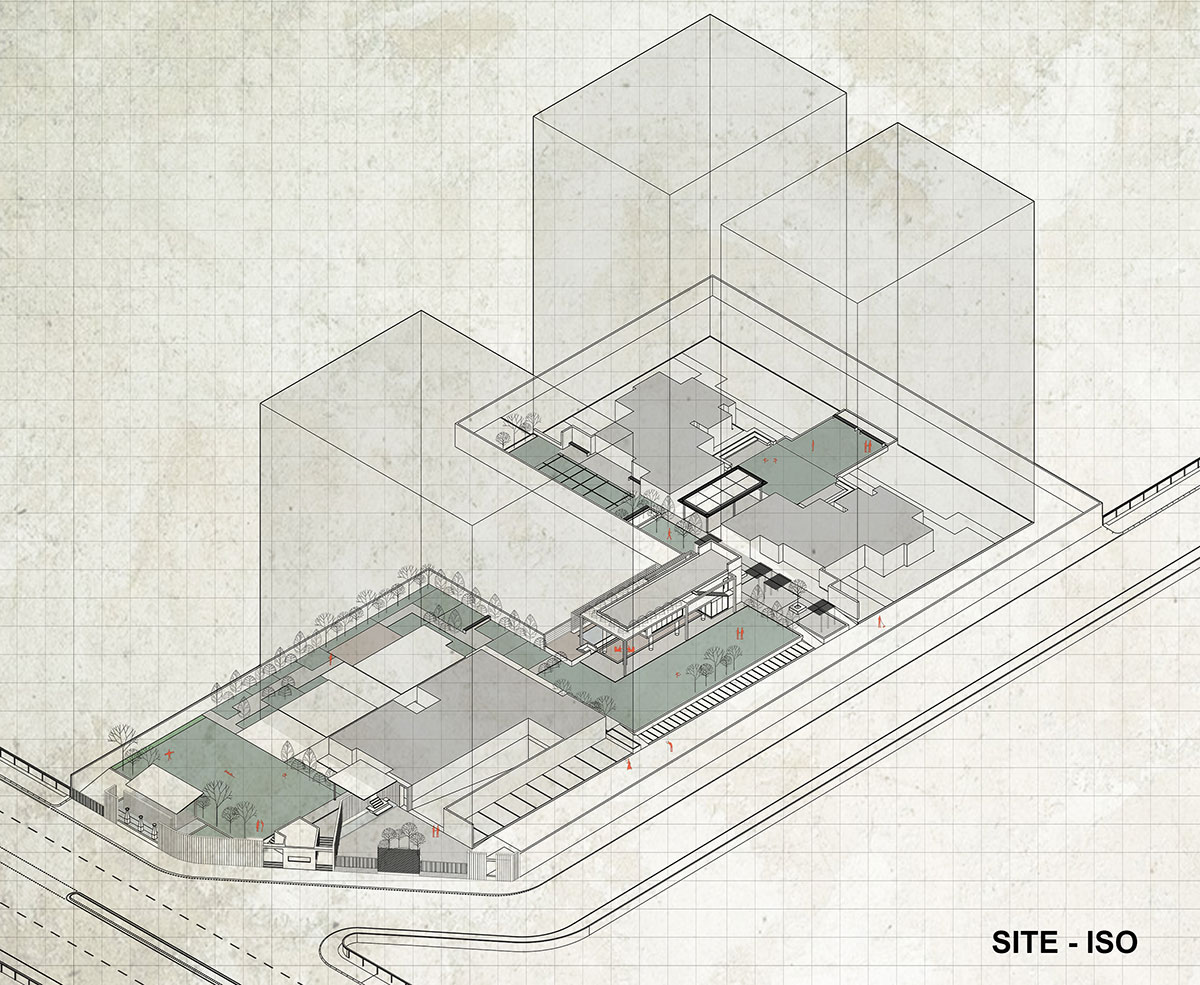

Interlinking nature: There are about 50 trees planted providing shade throughout the year. The tree species planted adjoining the walkways and seating spaces stays evergreen throughout the year. They stay green and fresh even during the harsh summer months of the city. The choice of vegetation around the buildings is aimed at creating a feeling of a small flowering home garden. There is a combination of floral varieties and colored varieties. The floral varieties selected are the ones that attract butterflies and bees. The terrace zone is equally populated with lush green potted plantations.
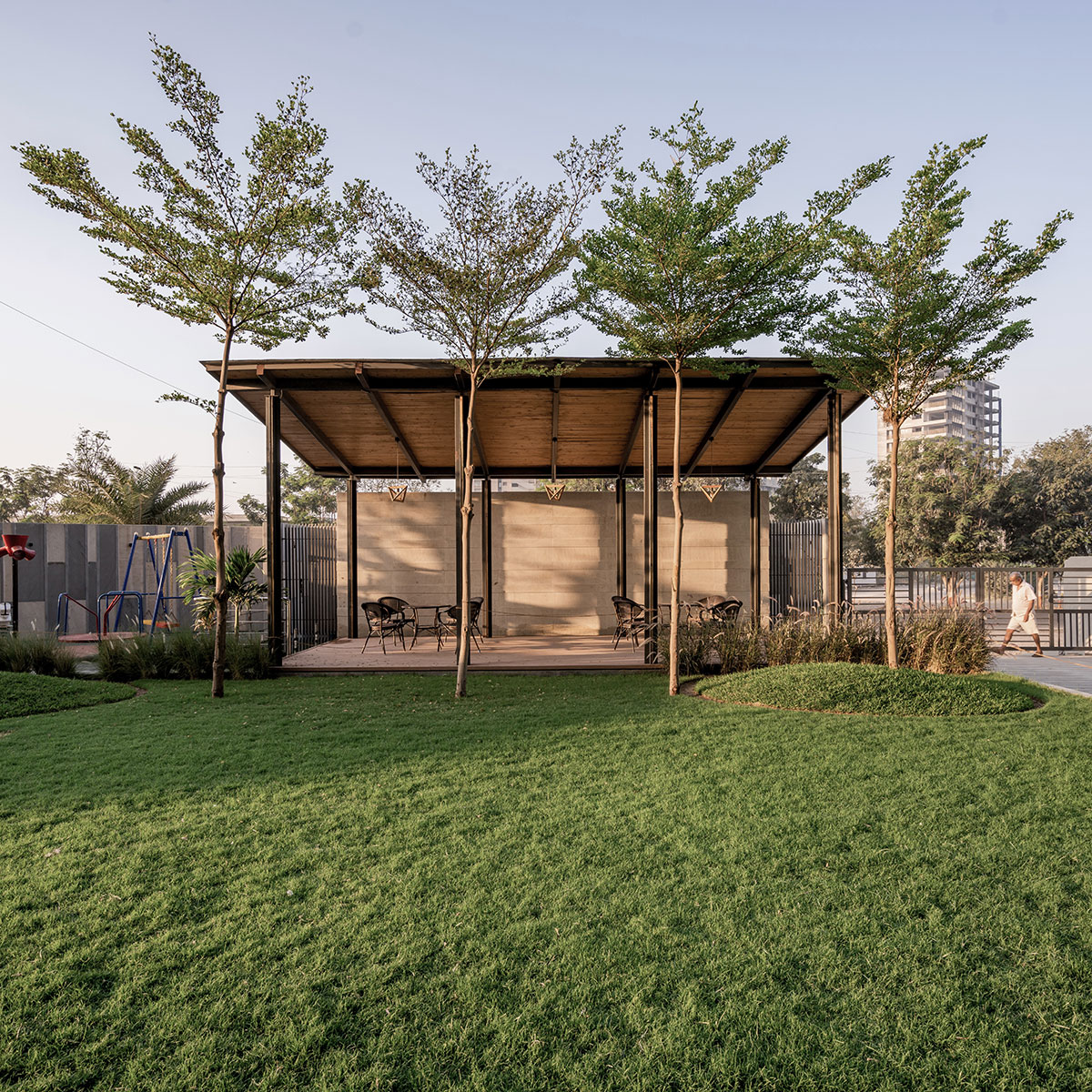
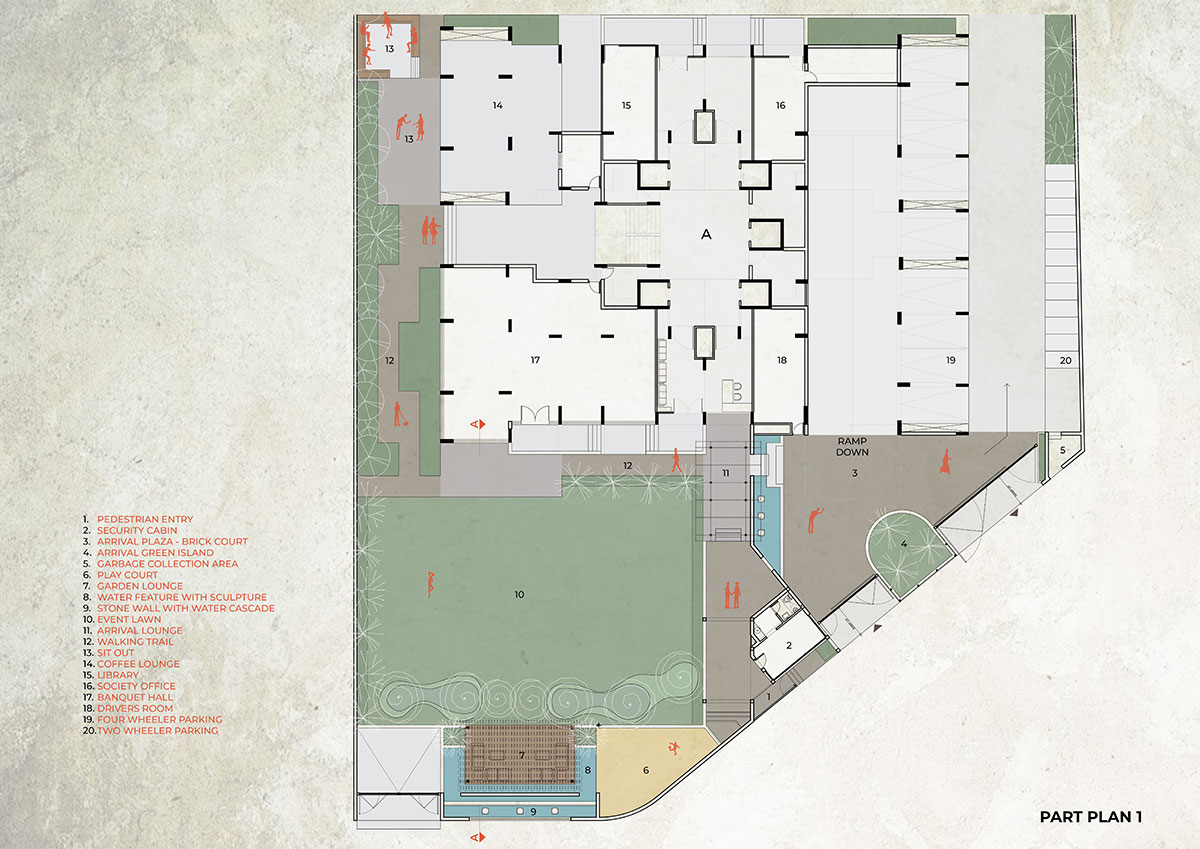
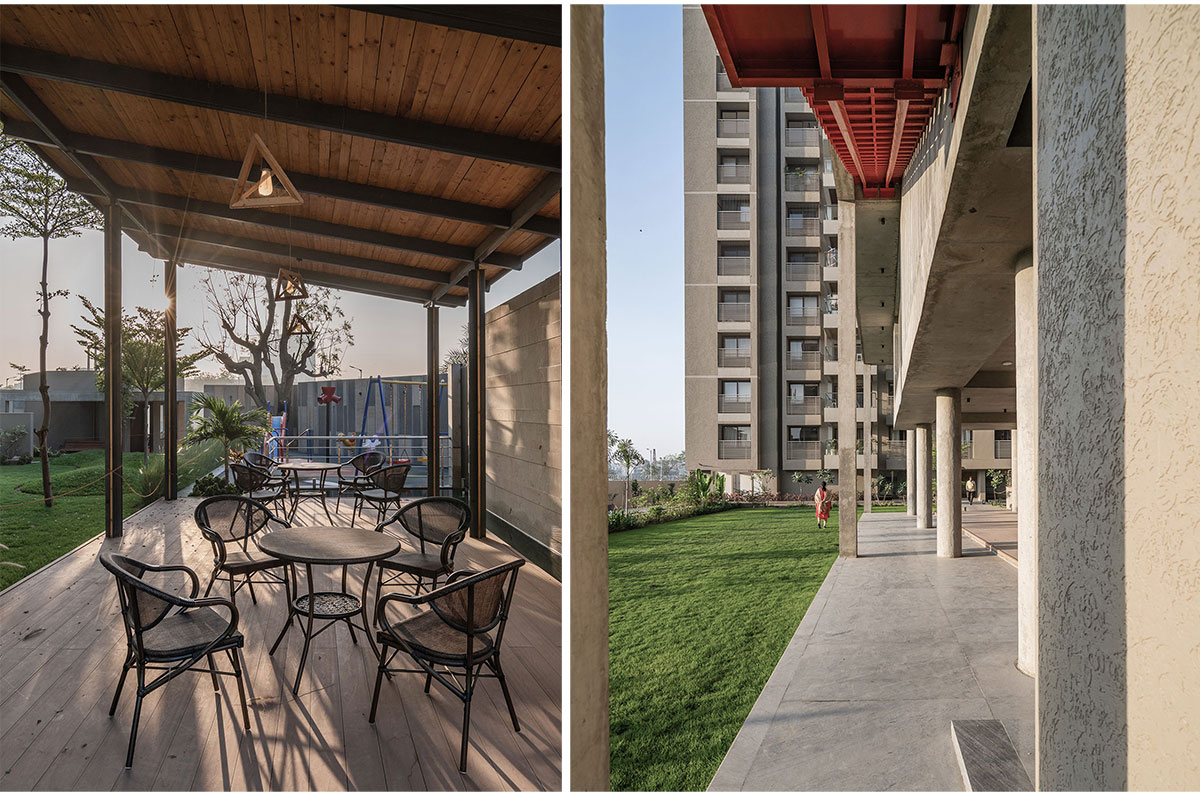
A demand for comfort, relaxation, and safety: Seating spaces becomes the most important place for community space. People are more comfortable seating in smaller groups with their friends. Different kinds of shaded and covered seating spaces are designed at different locations in the community spaces.
These seating spaces are designed as pavilions and pergola spaces. They are connected with adjoining pathways and larger open spaces. Even when one is seated under a pavilion, there’s a feeling of connectedness to the large open space.
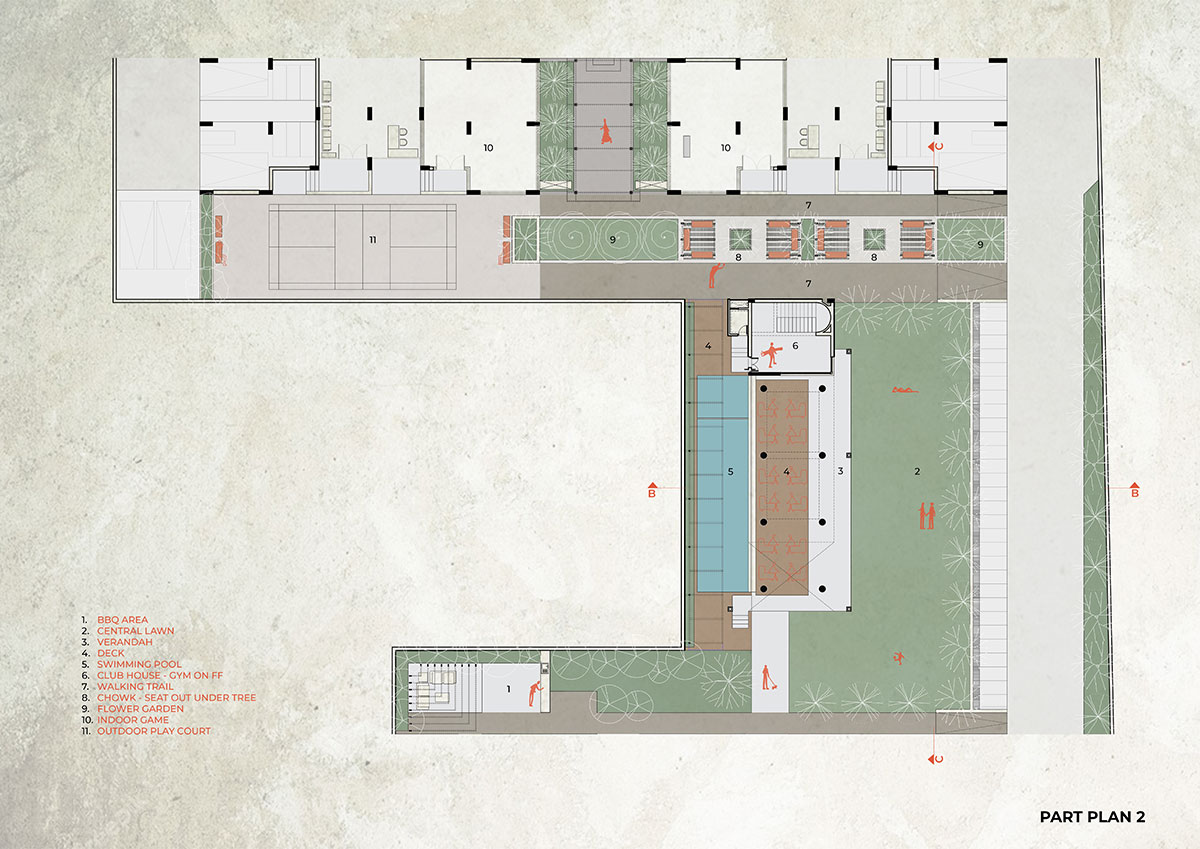
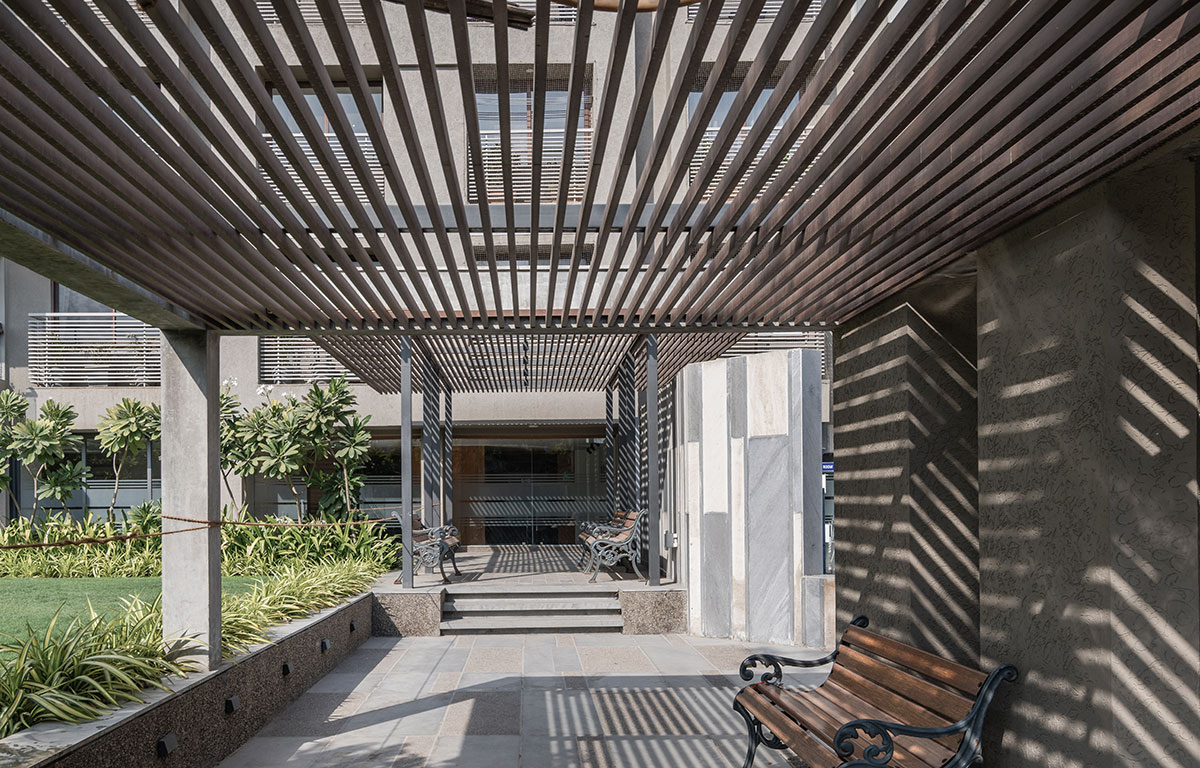
A demand for playfulness and break away from the mundane: A dedicated children’s play zone is designed. The play zone is edged by kitchen balcony space on three sides. There’s a watchful eye on the kids playing in the play zone. There’s a huge seating plaza connected with the play zone for the parents to seat and accompany the kids.
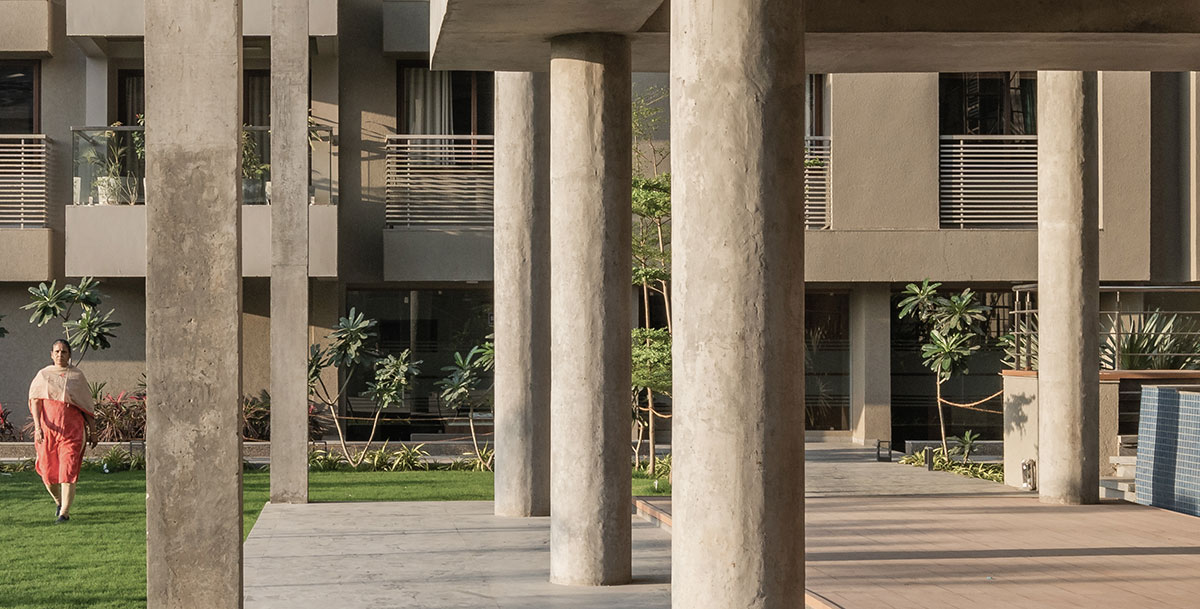
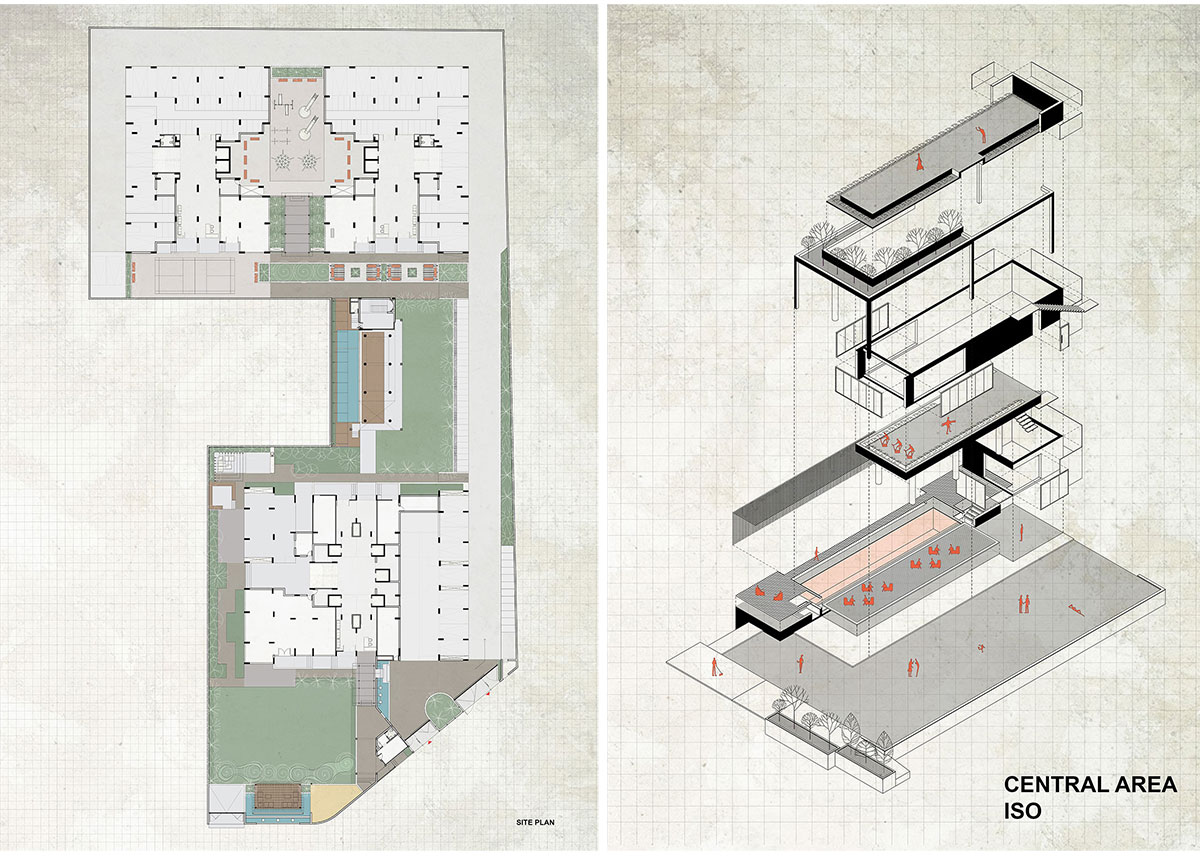
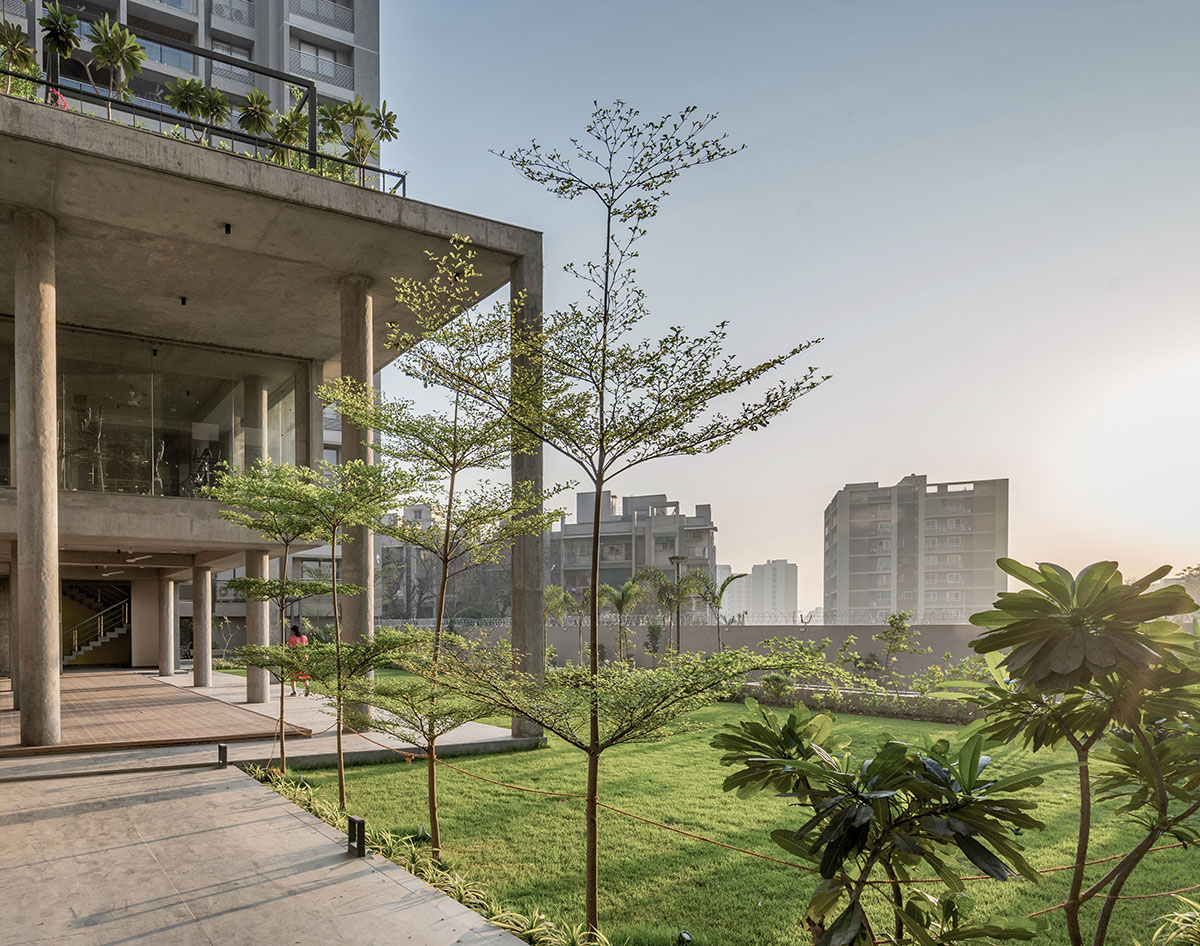
A dialogue of place with a variety of scales and volumes: A central pavilion is designed to house various community activities. The pavilion is designed as a single concrete shell with varied volumes of interconnected spaces. A simple assembly of vertical linear circular columns and horizontal flat slab contributes to the making of this dynamic space.
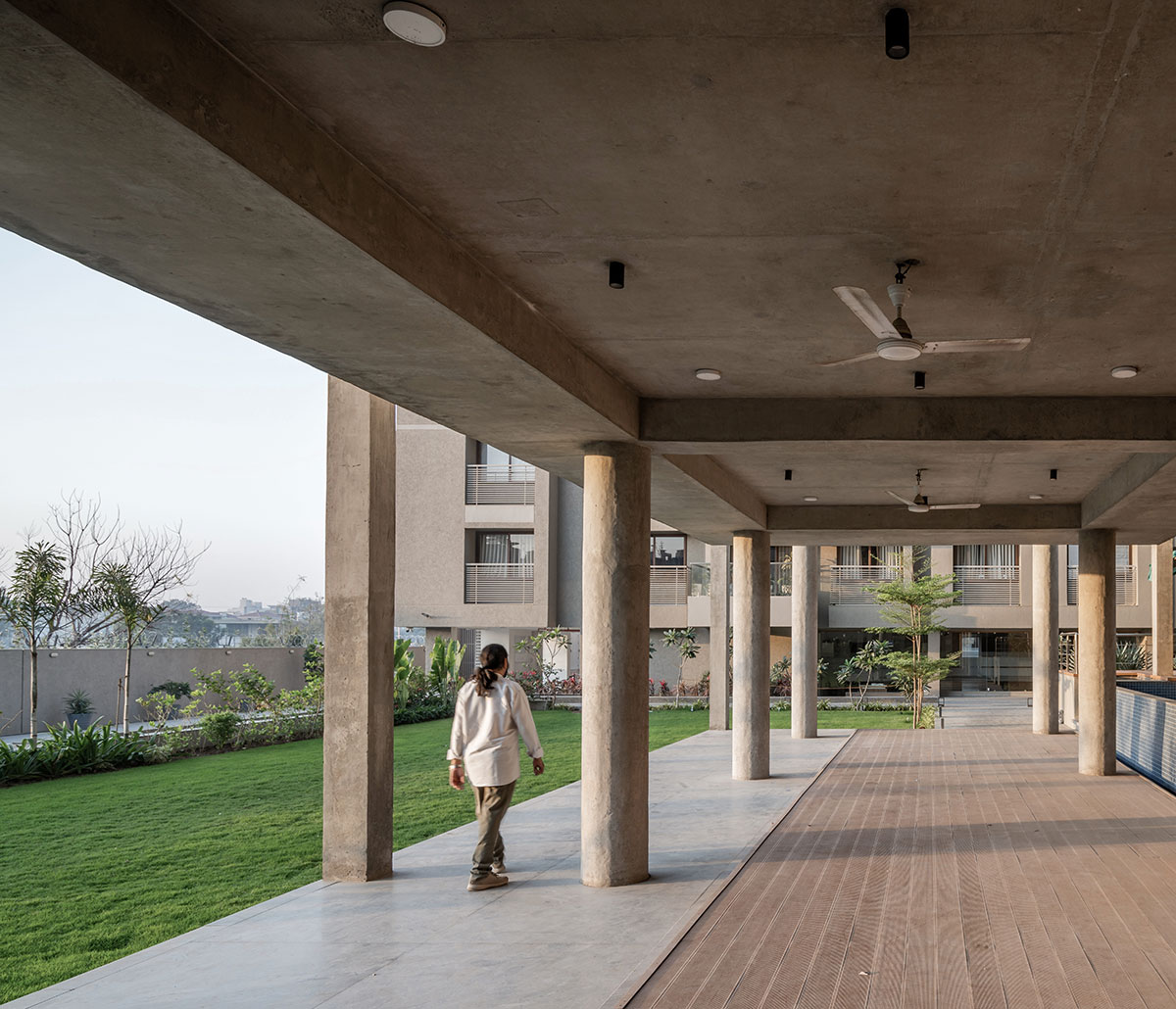
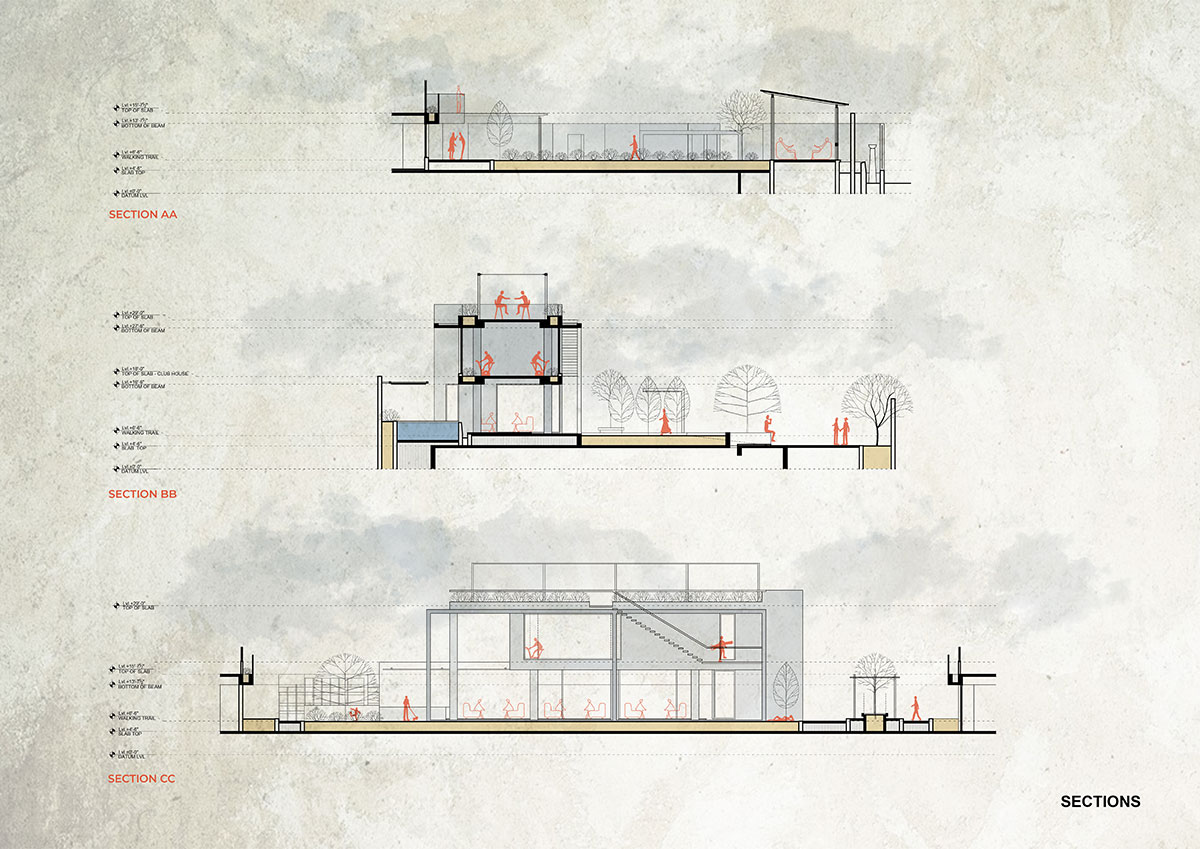
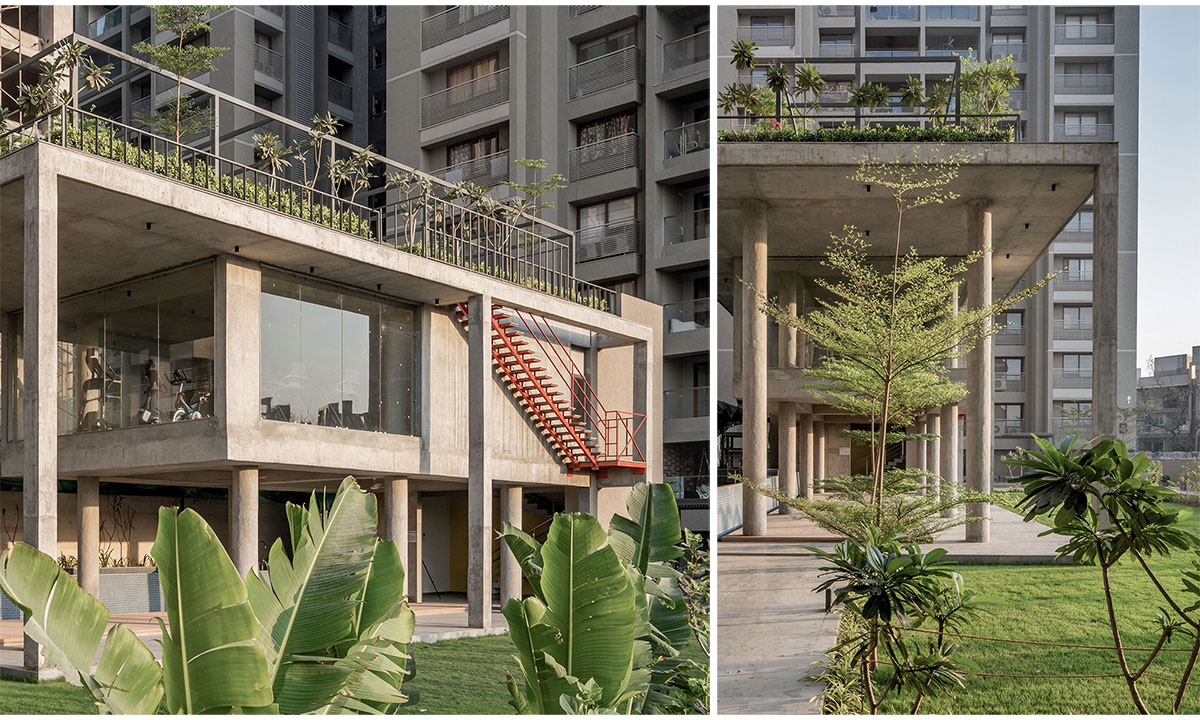
This contrast of mass to void creates an interesting dynamic of space. It accentuates an indivThe volume on the first floor is designed as a solid block in contrast to the volume on the ground floor. The linear assembly of circular columns shapes the space enclosure for the ground floor volume. The circular columns are kept freestanding. They define yet undefined the volume on the ground floor. The first-floor level spans to two-third part of the horizontal space, leaving the one-third as a double height volume.
idual’s experience of seating within the space. Natural flooring material with exposed concrete finish is used for the pavilion.
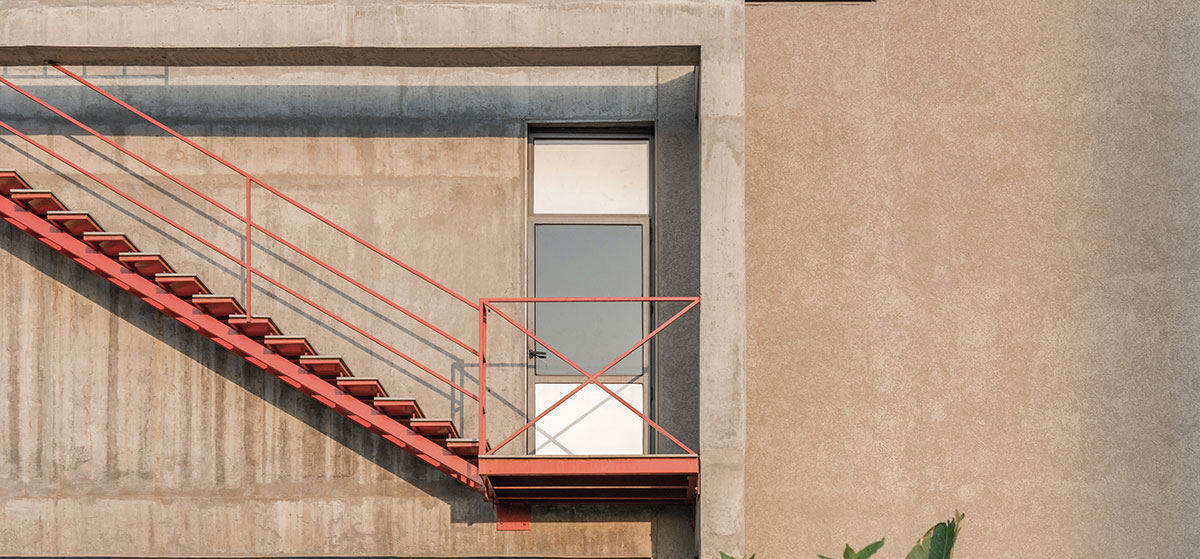
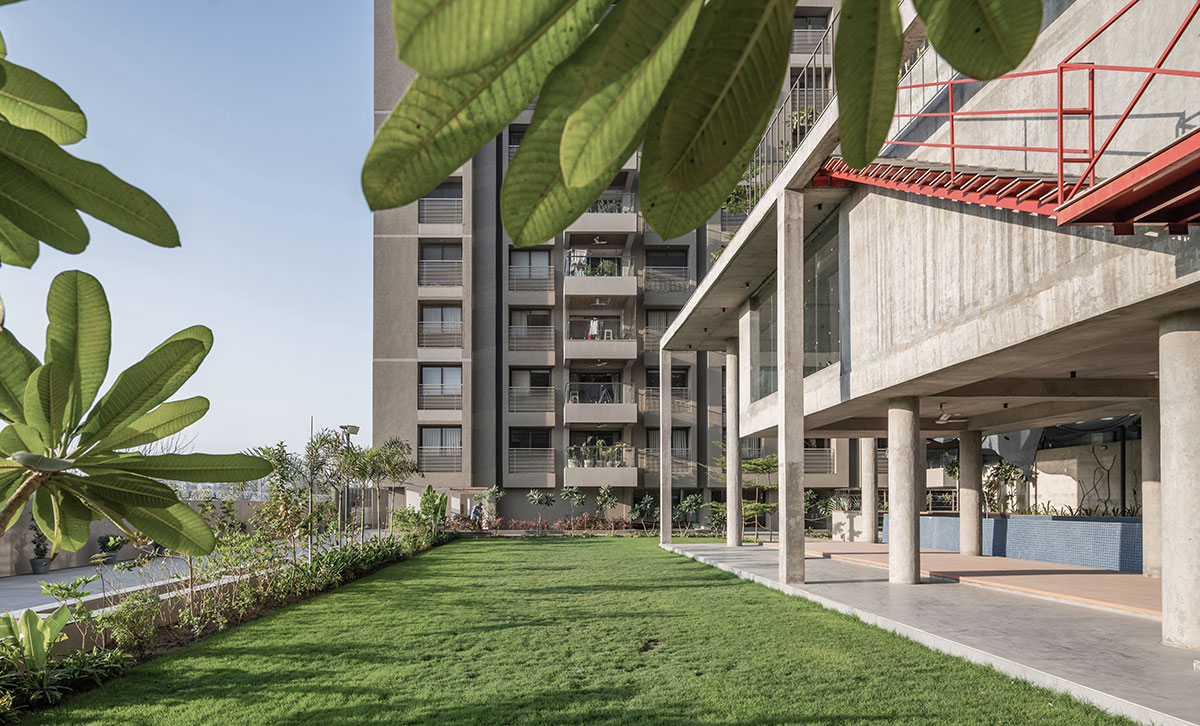
Consciously the designers have not used any colors for the pavilion area. Hence, the entire pavilion seems to merge with the surroundings. It is only the greens of the tree canopy, shrubs, and the lawn area one perceives while being in the pavilion space or of moving around it. Blue mosaic is used for the pool area. The staircase is designed as an element. The color is bright to create a striking contrast with the exposed concrete finish of the pavilion façade.
